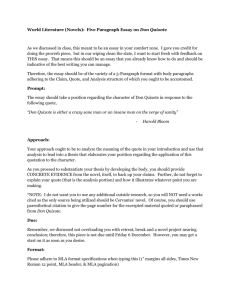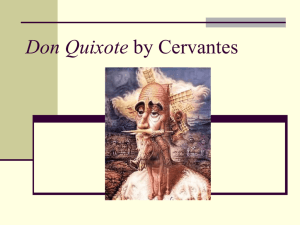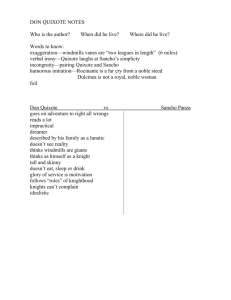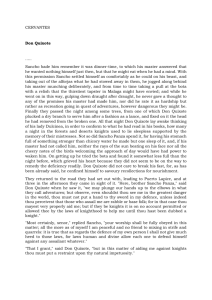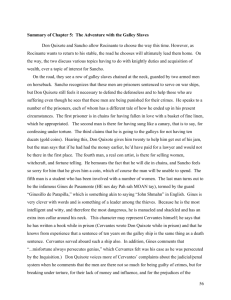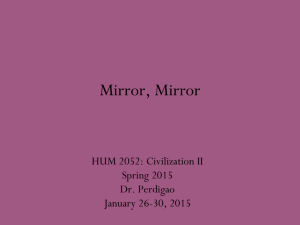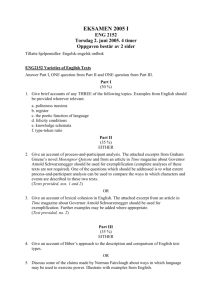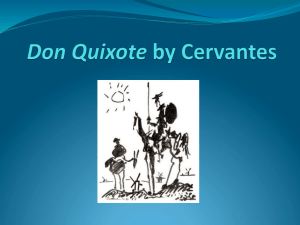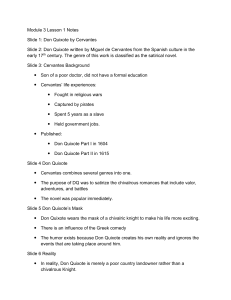Advanced Placement English 12: Literature & Composition Summer
advertisement
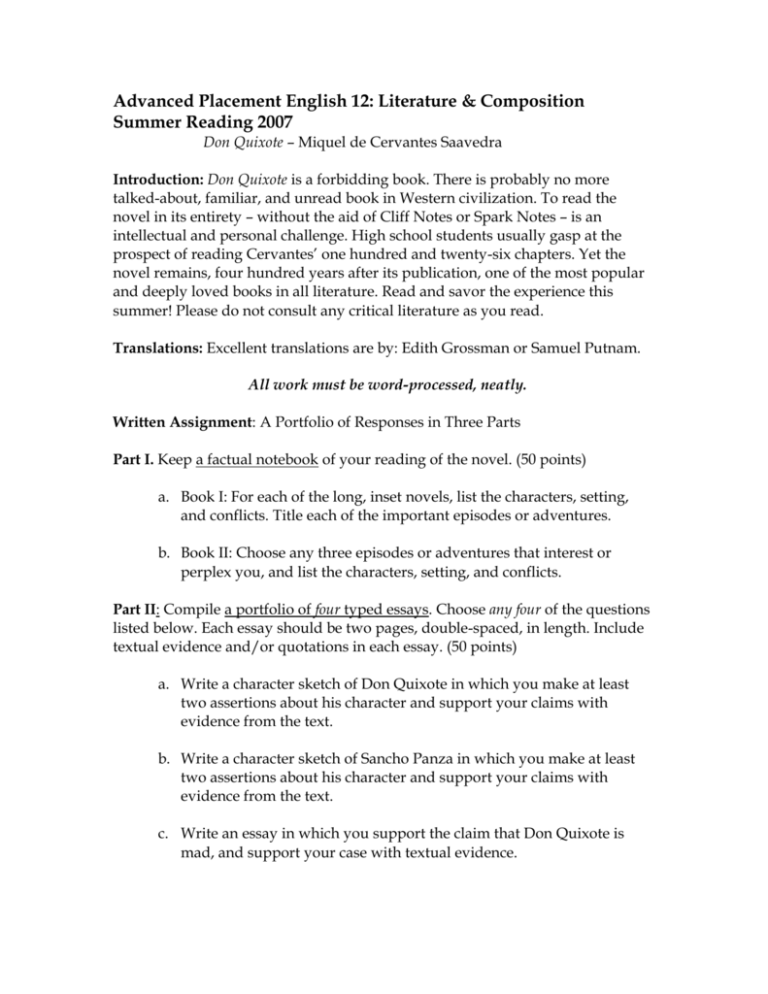
Advanced Placement English 12: Literature & Composition Summer Reading 2007 Don Quixote – Miquel de Cervantes Saavedra Introduction: Don Quixote is a forbidding book. There is probably no more talked-about, familiar, and unread book in Western civilization. To read the novel in its entirety – without the aid of Cliff Notes or Spark Notes – is an intellectual and personal challenge. High school students usually gasp at the prospect of reading Cervantes’ one hundred and twenty-six chapters. Yet the novel remains, four hundred years after its publication, one of the most popular and deeply loved books in all literature. Read and savor the experience this summer! Please do not consult any critical literature as you read. Translations: Excellent translations are by: Edith Grossman or Samuel Putnam. All work must be word-processed, neatly. Written Assignment: A Portfolio of Responses in Three Parts Part I. Keep a factual notebook of your reading of the novel. (50 points) a. Book I: For each of the long, inset novels, list the characters, setting, and conflicts. Title each of the important episodes or adventures. b. Book II: Choose any three episodes or adventures that interest or perplex you, and list the characters, setting, and conflicts. Part II: Compile a portfolio of four typed essays. Choose any four of the questions listed below. Each essay should be two pages, double-spaced, in length. Include textual evidence and/or quotations in each essay. (50 points) a. Write a character sketch of Don Quixote in which you make at least two assertions about his character and support your claims with evidence from the text. b. Write a character sketch of Sancho Panza in which you make at least two assertions about his character and support your claims with evidence from the text. c. Write an essay in which you support the claim that Don Quixote is mad, and support your case with textual evidence. d. Write an essay in which you defend Don Quixote against charges of insanity, and support your case with textual evidence. e. Write an essay in which you discuss the influence of Don Quixote on Sancho Panza, and support your case with textual evidence. f. Write an essay in which you discuss Don Quixote as a symbol of the human spirit. What values does he represent? Support your case with textual evidence. g. Write an essay in which you discuss the significance of any two of the many women characters in the novel. Support your case with textual evidence. Part III: A Reflective Essay – Two pages, double-spaced, typed. (100 points) Imagine that Don Quixote were a student at Haddonfield Memorial High School – same spirit, younger body. How would he fare? Write an essay in which you discuss how Don Quixote would react to life in the high school and in Haddonfield. Feel free to be specific about him and about the culture in which you live and work: i.e. academics, sports, friendships, the cafeteria, parents, American culture, suburbia, weekend parties, the Shore, the college application process. Be true to Don Quixote and to the truth of your own life. NB: There will be an objective test on Don Quixote in September: 50% devoted to questions on Book I; 50% devoted to questions on Book II. Due: Parts I, II, and III are due as one portfolio on Monday, September 10th. No late summer work will be accepted for credit. Something to Look Forward To: Much of our work in September will be devoted to Don Quixote. We will organize research teams to investigate: Cervantes’s Life and Writing Career The World of Knighthood and Chivalry The Novel of Chivalry: Characteristics of the Hero Imperial Spain and Don Quixote
